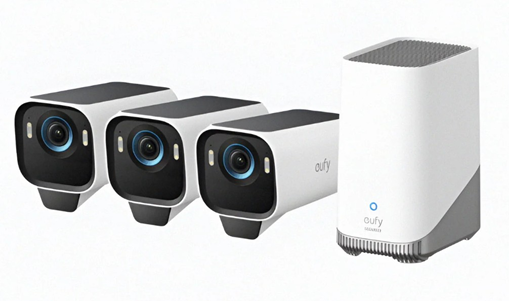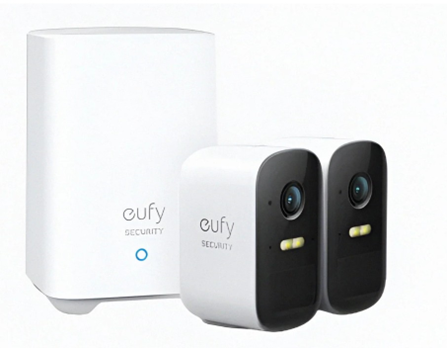A neighbor’s CCTV camera pointing at your house might be intrusive even for security. Although installation of surveillance systems is permitted in the UK, issues arise when cameras capture more than the owner’s property. Recording your yard, driveway, or window for someone else creates privacy concerns. Crucially, you must understand your privacy rights and how to protect them. From researching the regulations on CCTV cameras to having honest conversations, there are various ways to gently and politely address the situation with your neighbor.

How Can You Protect Your Privacy?
Understanding Your Rights in Privacy
Protected in the UK by the Human Rights Act and the Data Protection Act 2018 is anonymity. Should a neighbor’s CCTV footage show regions beyond their property—such as your garden or windows—they become a “data controller” and have a legal obligation. This covers restricting the footage recorded, employing visible signs, and having legitimate use. You are entitled to be asked to view any film that has been captured, including you. Understanding these rights helps you evaluate if your privacy is being breached and whether your neighbor is violating the law on neighbours cctv cameras by recording areas without a valid justification.
Simple Measures to Block Camera Views
If your neighbor’s CCTV intrudes on your privacy, physical deterrents can assist. Place tall plants, trees, or shrubs in the camera’s view. Adjust your blinds or drapes to cover any exposed portions, especially at night when inside lights are more visible. Window films restrict outward vistas without limiting natural light. These approaches obscure the view while avoiding conflict. They give initial security and peace of mind, but they are not completely reliable. It’s a proactive way to limit what the camera sees while you determine what to do, especially when tensions are low.
Installing Privacy Screens or Barriers
Privacy screens, fences, and trellises more methodically limit observation. Use frosted glass, wooden panels, or thick lattice with climbing plants for optical coverage and aesthetic appeal. Review local property laws—including height restrictions—before building. Strategic placement around windows, patios, and gardens lowers surveillance. These physical changes can discourage intrusion and free up confrontation. These obstacles increase your privacy and outdoor space while you choose whether to defend your rights by legal or neighborly action.

What Legal Actions Can You Take?
Understanding Local Laws on CCTV Surveillance
UK residents can install CCTV for personal security but not to record other people’s property. If your neighbor’s system records outside their home, they must follow the UK GDPR and Data Protection Act 2018 regulations. These ICO-enforced laws require good rationale, conspicuous signage, and minimum data collection. Ignoring these obligations may render its arrangement unlawful. Understanding the law is critical if your privacy is being violated. Knowing your rights allows you to request footage, make system changes, or report noncompliance to authorities.
When Should You Contact Authorities?
If your neighbor refuses to move their camera despite a courteous request and you think your privacy has been violated, it is time to escalate. Begin by documenting the problem—take images of the camera angle and keep a record of communications. Submit a Subject Access Request to access any footage featuring you. If there is no resolution, please contact the Information Commissioner’s Office (ICO). The ICO may investigate and advise the neighbor on compliance. If you suspect harassment, you can also contact your local council or the police. Escalating properly guarantees that your privacy is protected without quickly turning into a legal conflict.
Legal Remedies for Privacy Breaches
Legal remedies abound when informal attempts and communication fail. Should your data rights under the Data Protection Act 2018 be compromised, you can formally complain to the ICO. If the breach disturbs you, think about filing a legal claim for damages. Under extreme circumstances—especially with ongoing harassment—you could seek legal action via the courts. Compensation can be sought using small claims processes; injunctions can mandate camera changes or removal. Although they are the final choice, legal remedies offer a way to become at peace when your rights are obviously disregarded, and your life suffers greatly.
How to Approach Your Neighbor
Starting an Open Dialogue with Your Neighbor
Before taking any official action, discuss the issue rationally. Your neighbor may not be aware that their CCTV cameras are recording your property. Discuss your concerns carefully in a neutral setting. Instead of condemning them, think about how the camera affects your privacy. Ask questions to better understand and explain your perspective. Avoid using angry phrases and focus on collaboration rather than conflict. This strategy addresses many issues quickly and respectfully while maintaining neighborliness. Effective communication can help you avoid legal and emotional concerns.
Making a Respectful Request for Adjustments
If your neighbor agrees, request camera angle modification, privacy masking, or directional shielding. Many contemporary CCTV systems allow users to set privacy zones to limit image recording. Suppose the gadget lacks these capabilities, tilt or relocate the camera away from your property. Offer security and privacy solutions. Offer acceptable options to encourage compromise rather than confrontation. Respectful appeals generally yield better outcomes than demands, and a little thought on both sides may resolve the issue without fighting.
Seeking Mediation, if Necessary
Once discussions fall short, community mediation is a good alternative. Mediators are objective third persons taught to manage conflicts. Many local governments and civic groups offer these services either for free or heavily subsidized. Mediating lets both sides communicate their problems under control, therefore promoting justice. It is particularly helpful in cases of intense emotions or disturbed communication. If your neighbor won to participate, mediation is a nice and effective way to get at a compromise and protect your privacy.
Conclusion
CCTV protects rather than provokes. Know your rights and options if a neighbor’s camera is pointed at your house. Check to see whether your privacy is jeopardized, and then speak gently with your neighbor. From changing curtains to obtaining film or contacting the ICO, each move allows you to recover your space. The regulation on neighbor CCTV cameras strikes a compromise between safety and privacy, and courteous settlement is typically achievable. Protecting your privacy with a nice conversation, smart changes, or legal assistance is feasible and beneficial.

